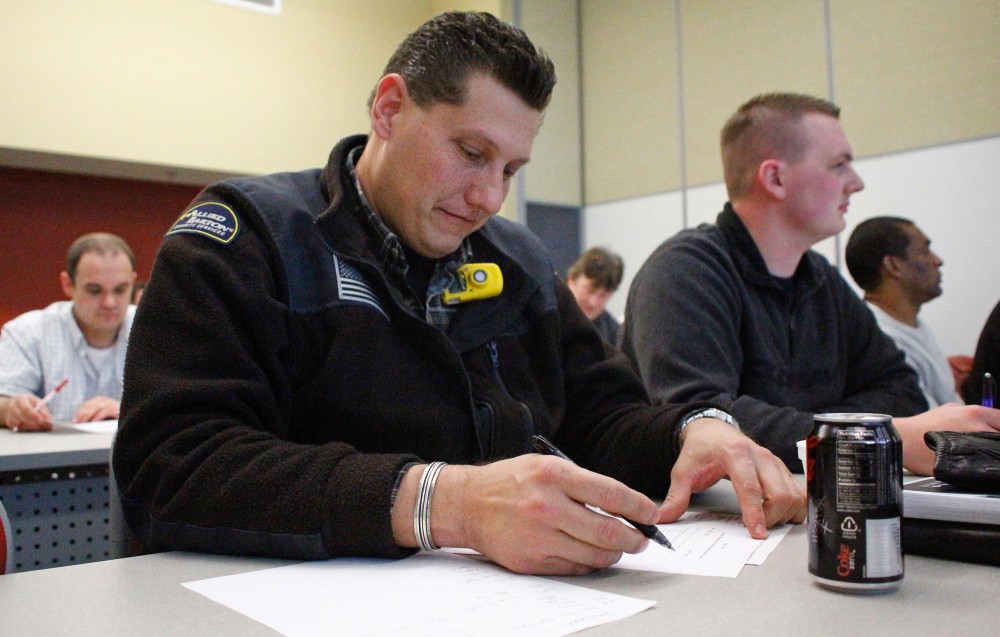The office in charge of responding to the tornado that tore through north Minneapolis in May has received two state grants to continue planning and preparation for future emergencies.
On Friday, the Minneapolis City Council will accept the grants âÄî $1.15 million in total âÄî which will help fund the cityâÄôs Emergency Management office.
The Emergency Management office develops emergency plans for a vast array of scenarios that might occur in the city. From terrorist attacks to hazardous materials spills, the office drafts highly detailed plans meant to most effectively respond to an emergency. It also helps train local businesses, nonprofits and all city departments in how to execute those plans.
Lisa Dressler, director of Emergency Management, said the grants are a huge factor in helping the office fund equipment and training exercises.
In March, the office brought about 75 people âÄî city police officers, firefighters, state department employees and more âÄî to Maryland for a weeklong class to run through responses to mock emergencies.
âÄúThey threw everything at us from hazardous materials spill, to a riot to mass sheltering people at a Twins game,âÄù Dressler said.
The seminar helped the group prepare for the very real emergency just a few months later, Dressler said. The May 22 tornado killed one, injured dozens and damaged about 3,600 north Minneapolis homes.
The city was one of the first to implement the Training Needs Assessment Program, which helped create detailed plans for each city department and allowed the city to work with regional partners, like Hennepin County and the City of St. Paul, to better prepare for an emergency.
âÄúWe have a robust training plan in which weâÄôve built out a four- to five-year plan for all of our departments,âÄù Dressler said. âÄúBecause of the grants, the program came at no cost to the city.âÄù
Dressler said Minneapolis aims to be a national leader âÄî emergency preparation is common nationwide and is often mandated by law.
Steven Fronk, director of MilwaukeeâÄôs Emergency Management office, said his department regularly completes exercises, but it tends to practice more regionally.
Although the Minneapolis Emergency Management office is in charge of planning for the whole city, most emergencies that occur at the University of Minnesota are handled by the UniversityâÄôs own Emergency Management office.
Gary Hendrickson, the University departmentâÄôs assistant director, said in addition to planning how to react to different emergencies, the office is also proactive in preparing for emergencies.
The University is in the process of testing its recently installed speaker alert system, which will broadcast information to prevent panic during crises. The speakers will alert students and faculty outside of University buildings.
The University office is also looking to switch providers of the TXT-U program in the spring in order to send out more timely messages in case of an emergency.
City Councilman Don Samuels said the council is proud of how the city has reacted to recent disasters. The north Minneapolis tornado has made the council even more supportive of training and practice.
âÄúPreparedness is very high on the cityâÄôs priority list,âÄù he said, âÄúbut we need to be even more equipped to deal with a disaster in the future.âÄù
âÄîThe Associated Press contributed to this report








